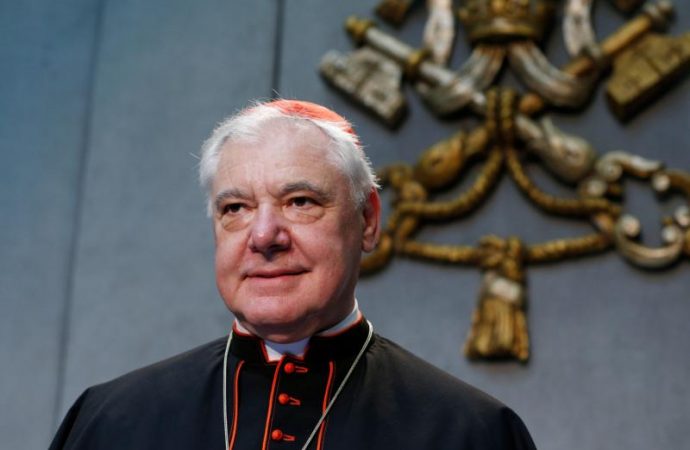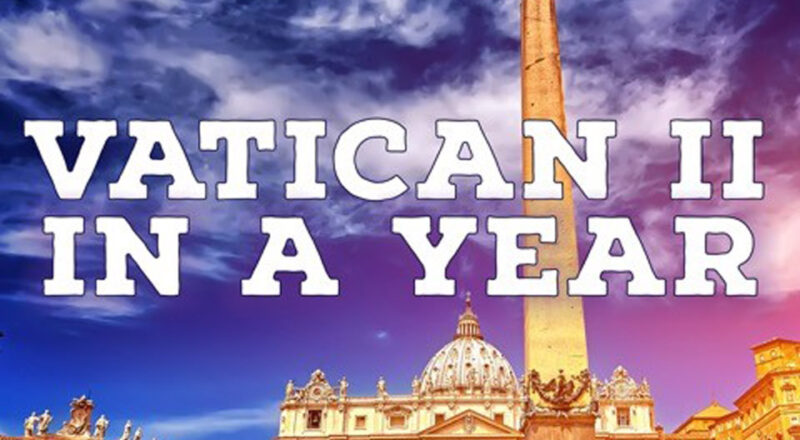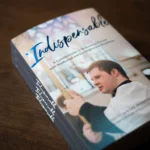Catholic media is part of the Church. It is often where those both inside and outside the Church get their information. This media tells what is happening in the Church and/or what the Catholic view about public events is. But so often, we have failed in that.
I think like the role of the theologian, the role of Catholic media has often been lost in recent times. In theology, we always return to Fides quaerens intellectum (Faith seeking understanding). This goes back to at least Augustine and whose formulation is usually attributed to St. Anselm. An important point of this definition is that faith is the starting point. Someone who does not believe can do comparative religion or even Biblical analysis, but they cannot do theology.
In Latin, Res Publica is a Latin phrase meaning approximately “public affair” so refers to what is newsworthy and the news itself. By extension, it refers to related fields like opinion and analysis. Thus, following Augustine’s / Anselm’s lead, I want to propose to all of us in Catholic media that we look at our job as Fides quarens rem publicam. We begin with faith in all the church teaches and we then look at the news to apply it. Catholic Media does not exist apart from Catholicism.
We need to avoid the extremes of both sides. We also need to look at ways to do theology and apply them to media.
“Catholic” Media on the Left
For a long time, I have wondered about how based in the truth of the faith certain “Catholic” publications were. Back when I was in college, I started wondering how Catholic the National Catholic Reporter was. In 2000, they had a contest to pick the new image of Jesus for the new millennium and chose one where the model was a woman and that emphasized non-Christian symbols over Christian ones. I support inculturated images of Jesus and Mary but there is a big difference between Jesus modeled after a man of this country or tribe holding a cross and this image. This does not seem to begin with fides. (Latin-lovers: yes, I know it would be “cum fide” but generally when we use Latin terms on their own in English, we use nominative.)
When I see such Catholic media outlets running pieces clearly in support of the German bishops disobeying the Vatican on blessing gay couples, I cry. The Church has clearly ruled on this specific point and it follows from the unchanging teaching of the Church.
“Catholic” Media on the Right

More recently, I have started to wonder about some “Catholic” media going in the opposite direction. For a while, Taylor Marshall has been a big player in such circles. Jeff Mirus describes Marshall’s book. He comments, “Discussing the book is rather like pointing out the absurdity of a crazy relative who always has an answer to every objection, pulled out of a world that exists only in his head. The fundamental stupidity of the book arises from the author’s felt need to explain the normal human condition in terms of a series of conspiracies.”
Recently, 1Peter5 lost its founder and editor, Steve Skojec. The new team issued an editorial stance. Scanning it, I was surprised that they put what as their non-negotiables. These are true and non-negotiable, but I would consider them so self-evident from the perspective of faith, that we need not state them. They are: “1. We accept Pope Francis as the reigning pontiff. 2. Vatican II is the 21st Ecumenical Council of the Church. 3. The New Mass and Sacraments are valid.” What kind of Catholic media world do we live in that these need to be stated as non-negotiables?
In the same piece, only three quotes were important enough to get block quotes. One was scripture, which is good. The other two were from a man who said, “Second Vatican Council [is] one of the greatest calamities, if not the greatest, in the history of the Church.” Is that a sense of faith after you just said it was an ecumenical council? To consider it on the level of the Protestant Reformation, the Schism of 1054, the Renaissance Popes, abuse scandals, Great Western Schism, Saeculum obscurum, etc., and conclude that Vatican II might be worse than any of them does not seem to follow a sense of faith.
Note: all examples in these two sections are demonstrative of wider tendencies. Many other examples could be chosen and these were just the ones that stood out to me while writing. I’ve seen others.
We Should Begin with Faith
If we are going to be involved in Catholic media, we should begin with faith.
This is not about defending the institution at all costs. But it should begin with adherence to Church teaching. If a cardinal is stealing money (or similar), doctrine (even natural law) teaches us that is wrong, and good Catholic media will call that out. Although we are a church of sinners, we should not be accepting of sin.
Jeff Mirus’s Rules
In the article about Marshall, Mirus gives “four key rules for authors who wish to be taken seriously as Catholic thinkers.” I will repeat them:
- “In making serious judgments, suspend personal preferences;
- Sentire cum ecclesia (think with the Church);
- Learn the rules of evidence before making claims of wrongdoing; and
- Never explain as a conspiracy or a plot what is out in the open, especially when it is endemic to the dominant culture.”
I think the second is most important. I would add a 2a to follow the teaching of the Church. This may seem even more basic but there are serious questions about it in some of the above examples.
Methods of Theology
In theology, there are multiple ways to reason, not all of which are good. I think we need to look at Catholic media in a similar light:
- Reason from Scripture, Tradition, and defined dogma to further truths or further application. This requires one to think with the Church. For example, in one section of my doctoral thesis, I look at the social doctrine of the Church for points which can be applied to informational privacy where it does not explicitly mention this.
- Make reflections on existing scripture, tradition, and magisterium to better understand points without expanding points. This is similar to the first, but ever-so-slightly different. In theology of the Body, this seems to be what St. John Paul II is doing: reflection on scripture and traditions to better understand the already defined truths about human sexuality.
- Reason from defined doctrine backwards. For example, once I know that Jesus is God (Nicaea), then I have an interpretive key for a few New Testament passages where without that I might be unsure.
- Start with a premise contrary to the faith or the ordianry magisterium, and try to find principles to support it. For example, when Protestants start with the premise that the Eucharist is not the body and blood of Jesus, they get interesting interpretations of John 6.
1-3 are valid and helpful for Catholic theologians, but 4 is a problem. In Catholic media, we need to look at both the truths of the faith and what we cover in a similar light. We must begin with the premise that Catholic teaching is right, whether this teaching is on the immorality of sexual relations between those of the same sex or to the licitness of super-remote cooperation in evil. Even if only clarified in ordinary magisterium, not defined extraordinarily, the Church clarifies (Lumen Gentium 25), “the faithful are to accept their teaching and adhere to it with a religious assent.” If we start with premises contrary to the faith, traditional teaching or ordinary magisterium, we can make arguments to fit those biases. But those are not good Catholic arguments.
Catholic Media as Witness
If you ever read the ordinary magisterium on media, it calls Catholic media to witness to the faith in the sphere of the media. Catholic media is often the first face of the Church many others see. We need to be witnessing to that truth. Surely, some of that will be stating failures of the Church, but we should start with the teaching of the Church. We should also begin with Christ’s charity in how we deal with others either inside or outside the Church.









